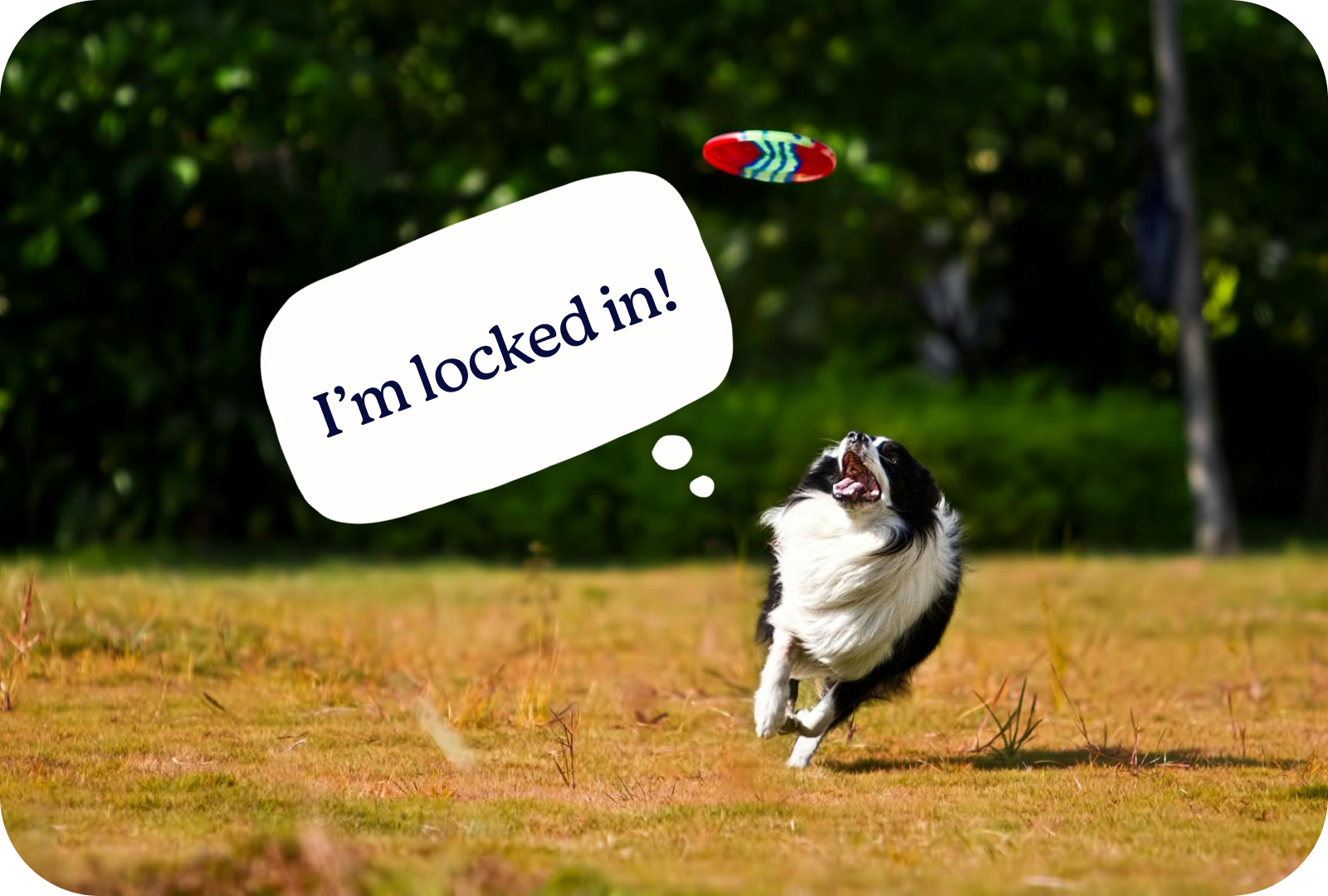Dog-Friendly Parks & Social Tips for Perth Pet Parents
As Perth's spring sunshine beckons and temperatures start to climb, your four-legged friend is probably giving you those eager looks that say "adventure time!" After months of shorter winter walks and indoor cuddles, it's the perfect season to dust off the leash and rediscover Perth's incredible dog-friendly destinations.
At Drovers Vet Hospital, we know that spring adventures are essential for your dog's physical health, mental stimulation, and social development. Whether your pup is a seasoned socialite or needs some confidence-building after a quieter winter, we've got you covered with expert tips and our favourite local spots.
Reviving Your Dog's Social Skills After Winter
Winter's shorter days and cooler weather often mean less outdoor socialising, which can leave some dogs feeling a bit rusty around their four-legged friends. Don't worry—this is completely normal! Here's how to ease your pup back into their social butterfly phase:
Start Small and Steady
Rather than diving headfirst into the busy weekend dog park crowd, begin with controlled one-on-one playdates with familiar dogs. This gradual approach prevents overwhelming your pup and helps rebuild their confidence naturally. Consider arranging meetups with neighbors' dogs or friends whose pets your dog already knows and enjoys.
Read the Signs
Your dog will tell you how they're feeling—you just need to know their language. Watch for stress signals like:
- Lip-licking or excessive panting
- Tucked tails or cowering
- Growling or showing teeth
- Trying to hide behind you
If you notice these signs, give your dog space immediately and don't force interactions. Remember, positive associations take time to rebuild.
Reward Success, Not Perfection
Pack high-value treats and reward your dog for calm, relaxed behaviour around other dogs—even if they're just tolerating the presence of others without engaging. This positive reinforcement helps build confidence over time. Avoid forcing interactions or using treats to lure your dog into uncomfortable situations.

Top Perth Spring Destinations for Dogs
Perth offers an incredible variety of dog-friendly locations, each with unique benefits for different types of adventures. Here are our veterinary team's top picks:
Edgar Griffith Park (Sinagra)
This gem offers the perfect combination of shaded walking trails and secure off-leash areas, making it ideal for dogs who love to explore but need boundaries. The mature trees provide essential shade as temperatures rise, and the enclosed sections allow nervous dogs to practice socialising in a controlled environment.
Perfect for: Dogs building confidence, senior dogs who prefer gentler exercise, and hot weather adventures.
Elcar Park Dog Exercise Area (Pearsall)
A dedicated paradise for active dogs, this park features purpose-built agility equipment and spacious off-leash zones. It's fantastic for high-energy breeds that need more than a casual stroll. The equipment helps with mental stimulation and can be a great confidence-builder for shy dogs.
Perfect for: High-energy breeds, dogs who love challenges, and owners wanting to try agility training.
Whitfords Beach (Hillarys)
Nothing beats a beach adventure! Your dog can enjoy leashed walks along the shoreline and, north of the lifeguard tower, off-leash swimming and playing. The combination of new smells, sounds, and textures provides incredible mental enrichment. Plus, those sunset beach walks are pretty magical for humans too!
Perfect for: Water-loving dogs, socialisation opportunities, and Instagram-worthy family photos.
Lake Joondalup (Check Local Regulations)
This scenic location offers designated dog-friendly trails that wind through beautiful natural areas. However, it's crucial to check current signage and regulations, as certain areas are restricted to protect local wildlife. When accessible, it provides a peaceful environment for leash training and gentle exercise.
Perfect for: Calm walks, wildlife observation (from a distance), and dogs who prefer quieter environments.

Essential Post-Adventure Care
Spring adventures are incredible for your dog's wellbeing, but they also come with seasonal health considerations. Here's how to keep your furry explorer safe and comfortable:
Parasite Prevention is Key
Spring weather creates ideal conditions for ticks and fleas, while grass seeds can work their way into paws, ears, and coats. After every outdoor adventure:
- Thoroughly inspect your dog's coat, paws, and ears
- Look for any embedded grass seeds or attached ticks
- Our in-house laboratory can provide quick parasite screenings if you find anything concerning
Ear Health During Spring Weather Changes
Perth's spring brings a perfect storm for ear infections—warming temperatures combined with lingering wet weather create ideal conditions for bacteria and yeast growth. Dogs with underlying allergies are particularly susceptible during this transitional period.
Watch for these warning signs after outdoor adventures:
- Frequent head shaking or ear scratching
- Unusual odor coming from the ears
- Brown, waxy discharge or redness
- Tilting their head to one side
Post-adventure ear care:
- Gently dry ears after beach visits or rainy walks
- Check for grass seeds or debris that may have entered the ear canal
- Never use cotton swabs deep in the ear—this can push debris further in
Dogs with floppy ears (like Golden Retrievers and Cocker Spaniels) are especially prone to moisture retention, making thorough drying even more important.
Paw Care Routine
Beach sand and park debris can cause irritation, so develop a simple post-adventure routine:
- Rinse paws with fresh water after beach visits
- Check between toes for cuts, thorns, or foreign objects
- Dry paws thoroughly to prevent bacterial growth
Hydration Station
As temperatures climb, proper hydration becomes critical. Always pack a collapsable water bowl and bring more water than you think you'll need. Dogs can dehydrate quickly, especially when excited about exploring new environments.

Beat the Heat
Spring in Perth can bring surprisingly warm days. Avoid midday adventures when temperatures peak, and opt for early morning or evening outings instead. Hot pavement can burn sensitive paw pads—if it's too hot for your bare hand, it's too hot for your dog's paws.
Your Partner in Pet Health Adventures
At Drovers Vet Hospital, we believe that healthy, well-socialised dogs make the happiest companions. Spring is the perfect time to ensure your furry friend is ready for months of outdoor fun ahead.
Concerned about ear infections or seasonal allergies? Our team is currently seeing an increase in ear infection cases during this transitional weather period. Early intervention leads to the best outcomes, so don't hesitate to bring your pup in if you notice any concerning symptoms.
Contact Drovers Vet Hospital today to schedule your dog's spring wellness check and start planning your Perth adventures together!
Heading 1
Heading 2
Heading 3
Heading 4
Heading 5
Heading 6
Lorem ipsum dolor sit amet, consectetur adipiscing elit, sed do eiusmod tempor incididunt ut labore et dolore magna aliqua. Ut enim ad minim veniam, quis nostrud exercitation ullamco laboris nisi ut aliquip ex ea commodo consequat. Duis aute irure dolor in reprehenderit in voluptate velit esse cillum dolore eu fugiat nulla pariatur.
Block ed do eiusmod tempor incididunt ut labore et dolore magna aliqua. Ut enim ad minim veniam, quis nostrud exercitation ullamco laboris nisi ut aliquip ex ea commodo consequat. Duis aute irure dolor in reprehenderit in voluptate velit esse cillum dolore eu fugiat nulla pariatur.
Ordered list
- Item 1
- Item 2
- Item 3
Unordered list
- Item A
- Item B
- Item C
Bold text
Emphasis
Superscript
Subscript

Although chocolate may be one of your favourite treats, never feed chocolate to your pet. It is poisonous for them! It contains substances called theobromine and caffeine (methylxanthine alkaloids) which are also contained in coffee, tea and some over-the-counter stimulants.
Chocolate poisoning is most commonly seen in dogs because of their habit to ingest food rapidly and they often have a “sweet tooth”. We see a higher incidence in puppies and young dogs, probably because they tend to ingest large amounts of unusual foods.
Chocolate poisoning can also affect cats, birds, rodents and reptiles however we see these cases much less frequently.
Symptoms of Chocolate Poisoning
The toxins in chocolate can affect you pet’s digestive system, nervous system and cardiovascular system.
Digestive system
- Vomiting & diarrhoea (2-4 hours after ingestion)
Nervous System
- Excitation/restlessness (increased body temperature, alertness)
- Muscle rigidity & tremors
- Seizures
Cardiovascular
- Increased respiratory rate
- Increased heart rate
- Reduced blood pressure (hypotension)
- Progresses to cardiac failure leading to weakness, coma and death can occur within 12-36 hours after ingestion.
The toxins are found in the highest concentration in cooking chocolate and dark chocolate, and there are lesser amounts in milk chocolate. There is almost no toxins are found in white chocolate.
Diagnosis
Chocolate poisoning can look similar to many poisonings or other conditions. Serious poisonings such as that caused by strychnine, amphetamines, pesticides, and some rodenticides can cause similar signs.
If you know your pet has eaten chocolate, contact us immediately, especially if your pet is showing any of the symptoms above. If possible, bring any vomit to the clinic as well, since this may aid in rapid identification of the toxic substance. Your veterinarian will need to examine your dog's nervous system and cardiac function carefully. He/she may want to run some blood tests to check for blood sugar levels and rule out other diseases. Since this poisoning progresses rapidly, signs may need to be treated symptomatically until a laboratory diagnosis is confirmed.
Treatment
There is no antidote for chocolate poisoning. Your veterinarian may use drugs to induce vomiting if the chocolate was consumed within the previous 2 - 4 hours or they may even need to administer a general anaesthetic in order to pass a tube into the stomach to wash
Once the chocolate is out activated charcoal treatment may be given to prevent any toxins remaining from being absorbed.
Pets that show more severe symptoms may need more specific medications in order to control the seizures and to prevent heart failure.
The expected course of chocolate poisoning is 12 to 36 hours depending on the dosage and effectiveness of treatment. Prognosis is good if the chocolate is removed within 2 to 4 hours of ingestion. Prognosis is guarded in animals with advanced signs such as seizures and serious heart dysfunction. So, please remember to keep your chocolates, cakes and chocolate-coated goodies safely away from your pets. Stick to healthy treats if you want to reward your special furry or feathered friend.
Have more questions?
Our state-of-the-art facility offers separate consultation rooms for dogs and cats, a fully equipped in-house laboratory, and specialised suites for surgery and dental care. For those tender moments, our uniquely designed Grief.









